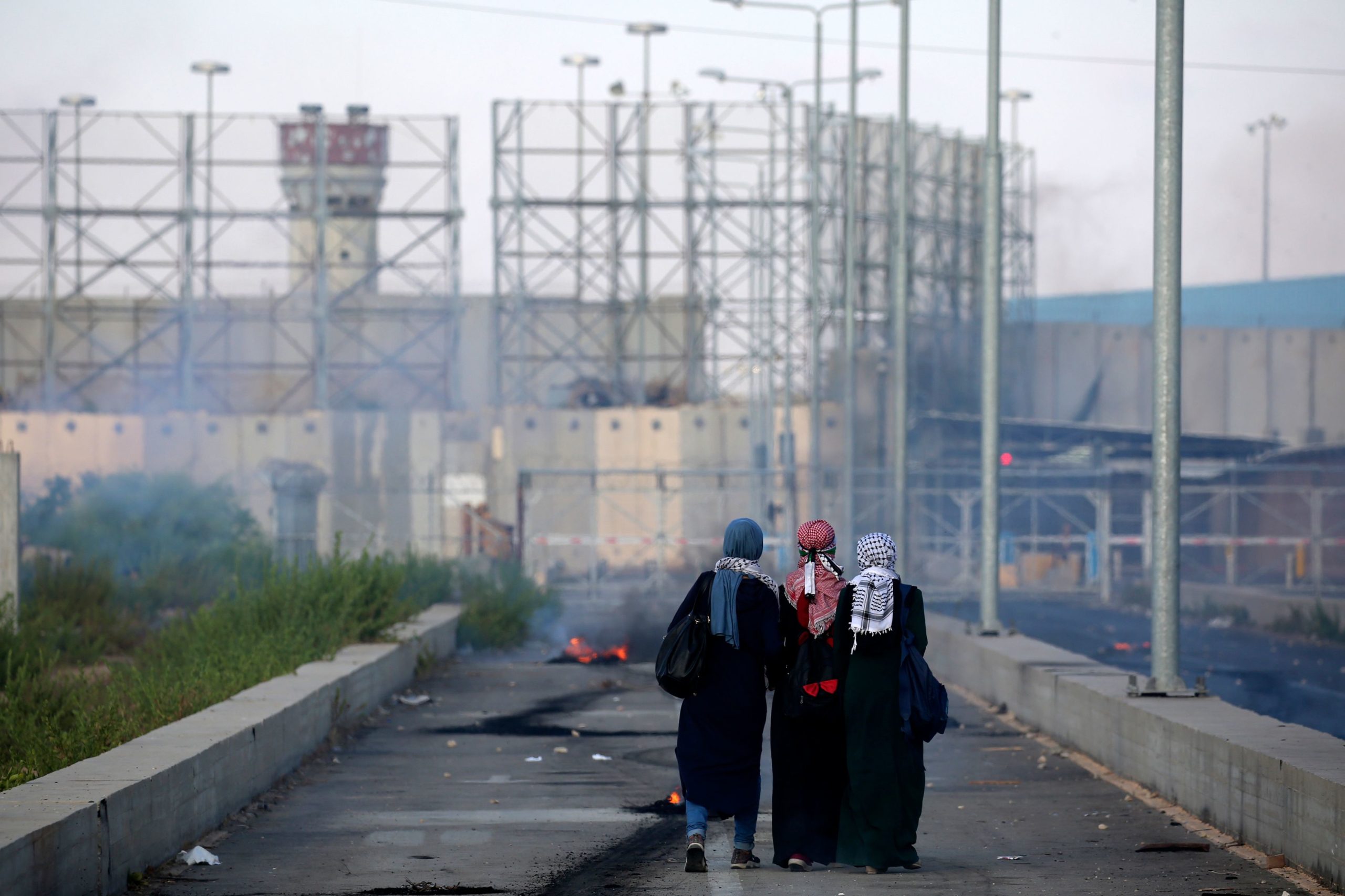
en.wikipedia.org
2000–present

Arab Israelis from Shefa-'Amr demonstrating in front of the Haifa court building with Palestinian flags
Tensions between Arabs and the state rose in
October 2000 when 12 Arab citizens and one man from Gaza were killed while protesting the government's response to the
Second Intifada. In response to this incident, the government established the
Or Commission. The events of October 2000 caused many Arabs to question the nature of their Israeli citizenship. To a large extent, they boycotted the
2001 Israeli Elections as a means of protest.
[52] This boycott helped Ariel Sharon defeat Ehud Barak; as aforementioned, in the 1999 elections, 94 percent of Israel's Arab minority had voted for Ehud Barak.
[59] IDF enlistment by
Bedouin citizens of Israel dropped significantly.
[60]
During the
2006 Lebanon War, Arab advocacy organizations complained that the Israeli government had invested time and effort to protect Jewish citizens from Hezbollah attacks, but had neglected Arab citizens. They pointed to a dearth of bomb shelters in Arab towns and villages and a lack of basic emergency information in Arabic.
[61] Many Israeli Jews viewed the Arab opposition to government policy and sympathy with the Lebanese as a sign of disloyalty.
[62]
In October 2006, tensions rose when Israeli Prime Minister
Ehud Olmert invited a right-wing political party
Yisrael Beiteinu, to join his coalition government. The party leader,
Avigdor Lieberman, advocated an ethnicity based territory exchange, the
Lieberman Plan, by transferring heavily populated Arab areas (mainly
the Triangle), to Palestinian Authority control and annexing major Jewish Israeli settlement blocs in the West Bank close to the green line as part of a peace proposal.
[63] Arabs who would prefer to remain in Israel instead of becoming citizens of a Palestinian state would be able to move to Israel. All citizens of Israel, whether Jews or Arabs, would be required to pledge an oath of allegiance to retain citizenship. Those who refuse could remain in Israel as permanent residents.
[64]
In January 2007 the first non-Druze Arab minister in Israel's history,
Raleb Majadele, was appointed
minister without portfolio (
Salah Tarif, a
Druze, had been appointed a minister without portfolio in 2001). The appointment was criticized by the left, which felt it was an attempt to cover up the Labor Party's decision to sit with Yisrael Beiteinu in the government, and by the right, who saw it as a threat to Israel's status as a
Jewish state.
[65][66]
During the
2021 Israel–Palestine crisis widespread protests and riots intensified across Israel, particularly in cities with large Arab populations. In Lod, rocks were thrown at Jewish apartments and some Jewish residents were evacuated from their homes by the police. Synagogues and a Muslim cemetery were vandalized.
[67] Communal violence including "riots, stabbings, arson, attempted home invasions and shootings" was reported from Beersheba, Rahat, Ramla, Lod, Nasiriyah, Tiberias, Jerusalem, Haifa and Acre.
[68]
Since the outbreak of the
2023 Israel–Hamas war, Israel has carried out
mass arrests and detentions of Palestinian workers and Arab citizens of Israel.
[69][70] On 5 November 2023,
CNN reported that "dozens" of Palestinian residents and Arab Israelis were arrested in Israel for expressions of solidarity with the civilian population of Gaza, sharing
Quran verses, or expressing "any support for the Palestinian people".
[71] Haaretz described the widespread targeting of Arab Israelis by Israeli security forces.
[72] Referring to "hundreds" of interrogations,
El País reported on 11 November that Israel increasingly treats its Arab minority as a "potential
fifth column".
[73]
I read that and I see a lot of inter community tension and inequality. None of that is "apartheid" though.













